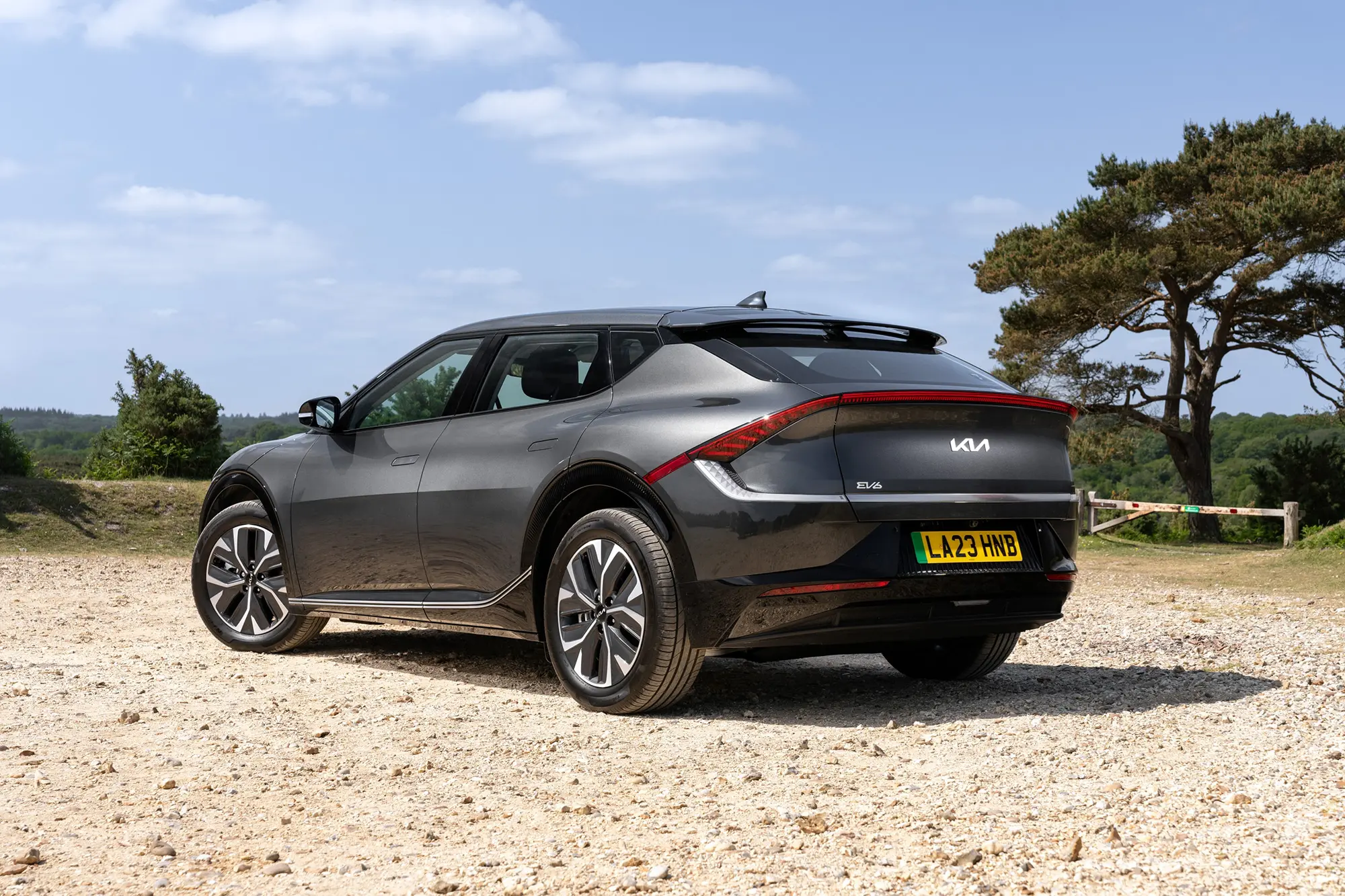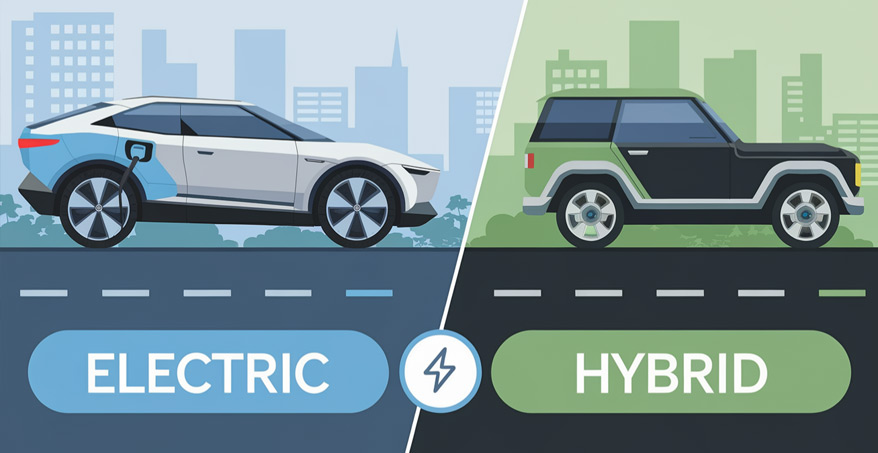Electric vs. hybrid: explore the future of sustainable driving in the USA.
As drivers in the USA increasingly seek greener alternatives, the debate between electric vehicles (EVs) and hybrids has become more relevant than ever. Both types of vehicles offer lower emissions and improved fuel efficiency compared to traditional gas-powered cars, but each has its pros and cons.
So, what is the future of driving—electric or hybrid? Let’s explore the differences to help you decide which option might be best for your needs.
Electric Vehicles (EVs)

Electric vehicles run solely on electricity, using large battery packs that are charged via external power sources. One of the biggest benefits of EVs is their zero tailpipe emissions, making them an environmentally friendly choice for reducing carbon footprints. Popular models like the Tesla Model 3, Chevrolet Bolt, and Ford Mustang Mach-E are leading the charge in the EV market.
Advantages of EVs:
- Zero emissions: EVs don’t produce any exhaust, helping to improve air quality and reduce greenhouse gases.
- Lower operating costs: Electricity is generally cheaper than gasoline, and EVs have fewer moving parts, reducing maintenance costs.
- Incentives: The U.S. government offers tax credits and incentives for EV buyers, which can significantly lower the upfront cost.
Challenges of EVs:
- Charging infrastructure: While improving, the nationwide charging network is still expanding. Long-distance trips require careful planning.
- Range anxiety: Some drivers worry about running out of charge before reaching their destination, although newer EVs offer ranges upwards of 300 miles.
Hybrid Vehicles

Hybrid cars combine a traditional internal combustion engine with an electric motor. Hybrids can run on either gasoline, electricity, or a combination of both, making them a flexible option for drivers who want better fuel efficiency without fully committing to an all-electric vehicle. Models like the Toyota Prius and Honda Accord Hybrid remain popular choices.
Advantages of Hybrids:
- Extended range: Hybrids can switch between gas and electric power, offering a much longer driving range than pure EVs.
- Fuel efficiency: Hybrids offer better mileage than traditional gas-powered cars, especially in city driving where the electric motor is more active.
- No charging dependency: Since hybrids rely on gasoline for longer trips, drivers don’t need to worry about finding charging stations.
Challenges of Hybrids:
- Emissions: While hybrids produce fewer emissions than gasoline cars, they still emit CO2 when the gas engine is in use.
- Higher maintenance: Hybrids have both an electric motor and a gas engine, which can lead to more complex (and costly) maintenance over time.
Which is the Future?
The future of driving will likely lean toward electric vehicles as technology improves, charging networks expand, and governments push for stricter emissions regulations. However, hybrids will continue to play an important role during the transition to fully electric vehicles. For drivers who aren’t ready to make the full leap to electric, hybrids offer a balanced compromise with lower emissions and no range anxiety.
Conclusion
Whether you choose an EV or a hybrid depends on your driving habits, access to charging stations, and your commitment to reducing your carbon footprint.
As the auto industry shifts toward electrification, both options represent a greener future, but electric vehicles seem to be paving the way forward.


